51+ Sample Consulting Agreements
-
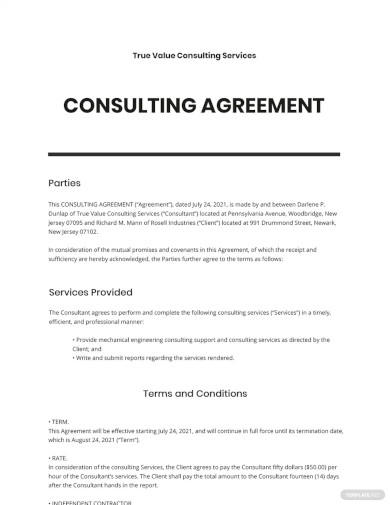
Simple Consulting Agreement Template
download now -
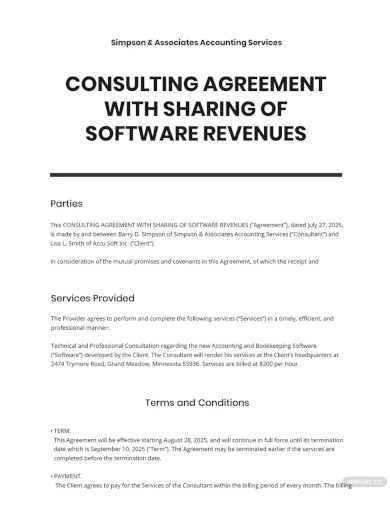
Consulting Agreement with Sharing of Software Revenues Template
download now -
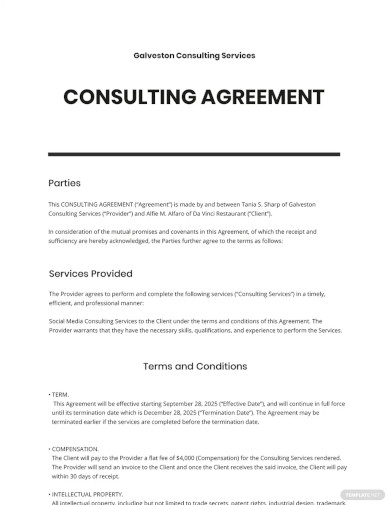
Consulting Agreement Template
download now -
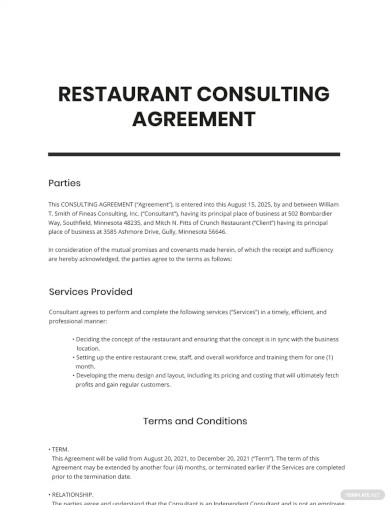
Restaurant Consulting Agreement Template
download now -
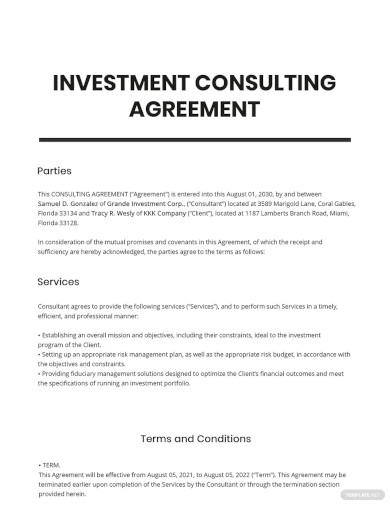
Investment Consulting Agreement Template
download now -
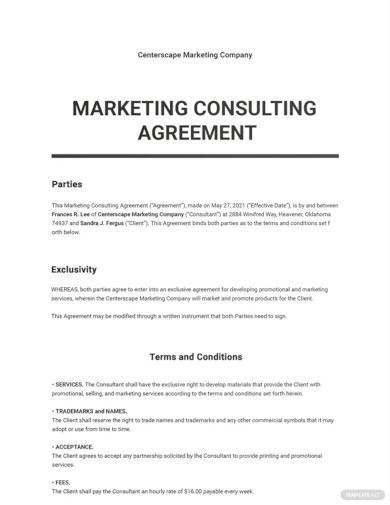
Marketing Consulting Agreement Template
download now -
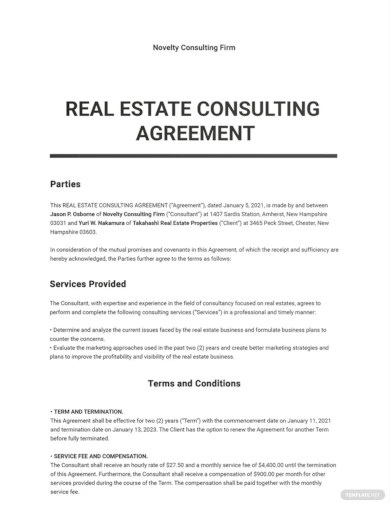
Real Estate Consulting Agreement Template
download now -
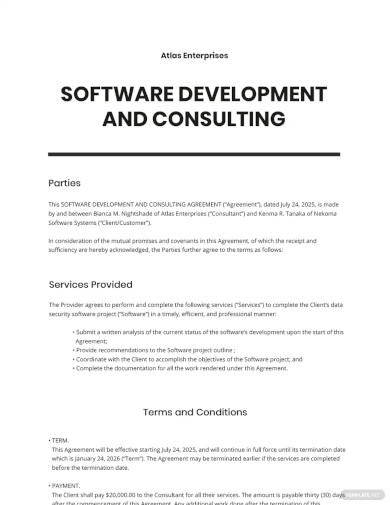
Software Development and Consulting Agreement Template
download now -
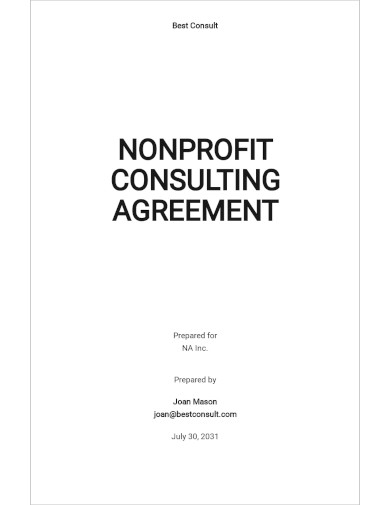
Nonprofit Consulting Agreement Template
download now -
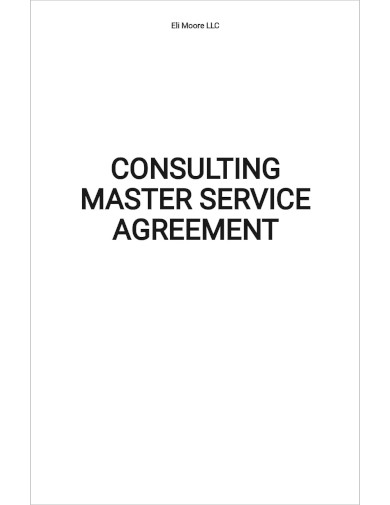
Consulting Master Service Agreement Template
download now -
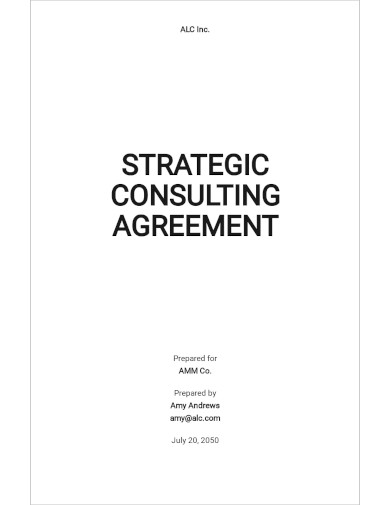
Strategic Consulting Agreement Template
download now -
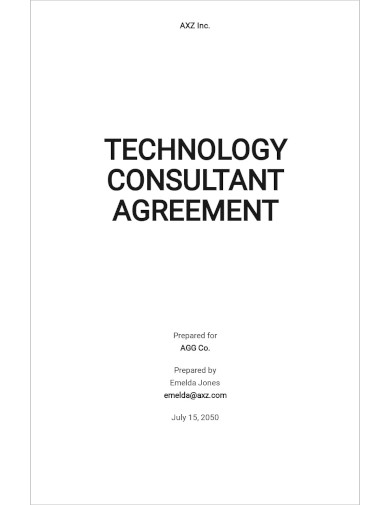
Technology Consulting Agreement Template
download now -
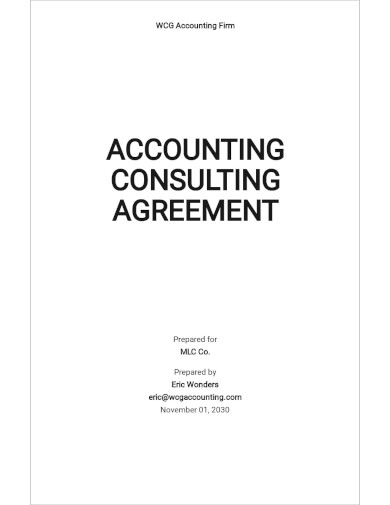
Accounting Consulting Agreement Template
download now -
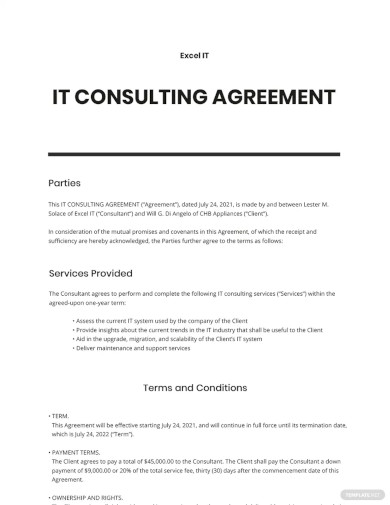
IT Consulting Agreement Template
download now -
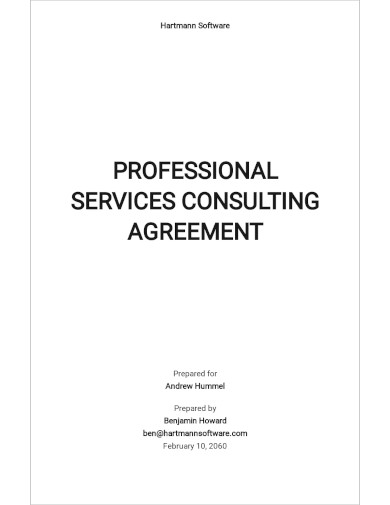
Professional Services Consulting Agreement Template
download now -
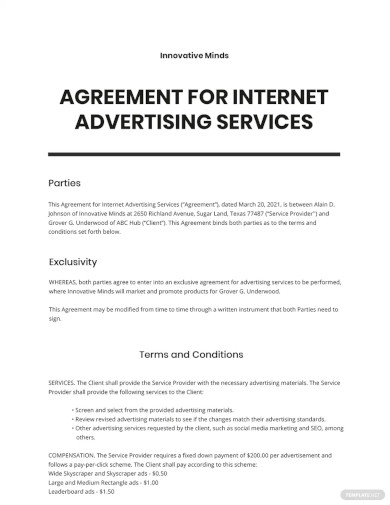
Agreement for Internet Advertising Services Template
download now -
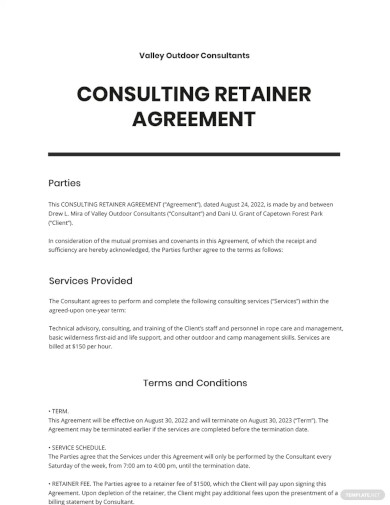
Consulting Retainer Agreement Template
download now -

General Consulting Agreement Template
download now -

Sample Marketing Consulting Agreement Template
download now -

Sample Consulting Agreement with Sharing of Software Revenues Template
download now -
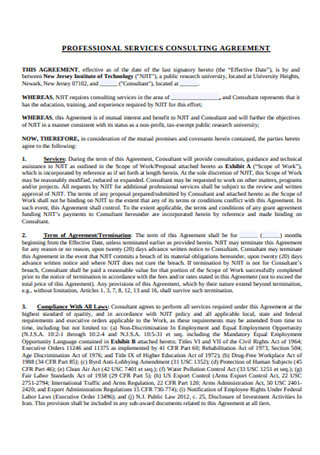
Professional Services Consulting Agreement
download now -
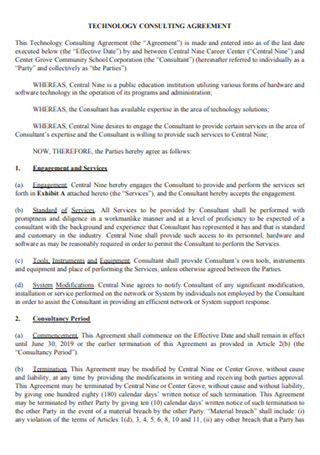
Technology Consulting Agreement
download now -
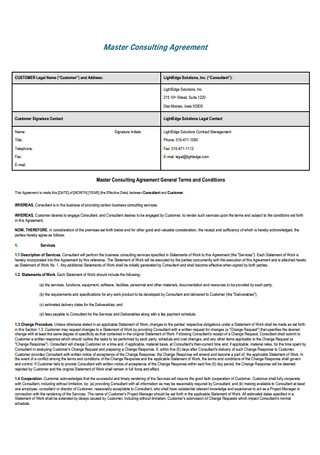
Master Consulting Agreement
download now -
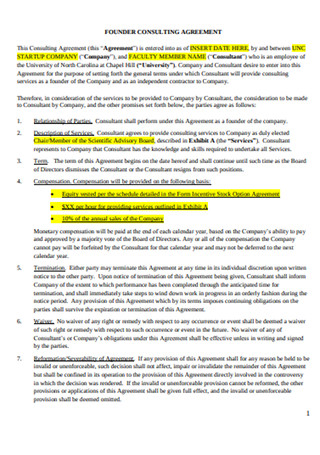
Independent Contractor Consulting Agreement
download now -
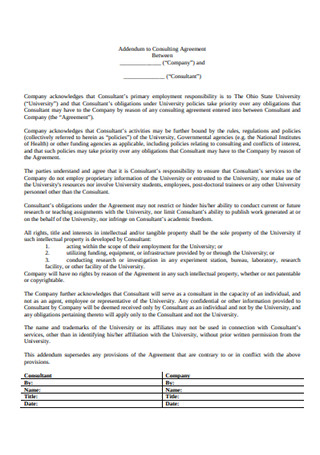
Addendum to Consulting Retainer Agreement
download now -
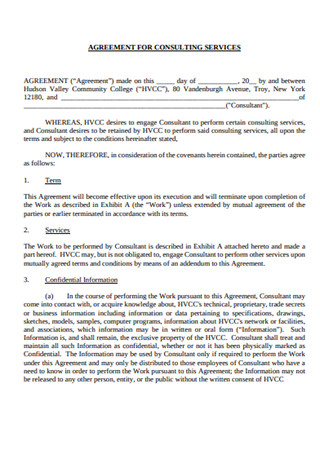
Sample Business Agreement for Consulting Service
download now -
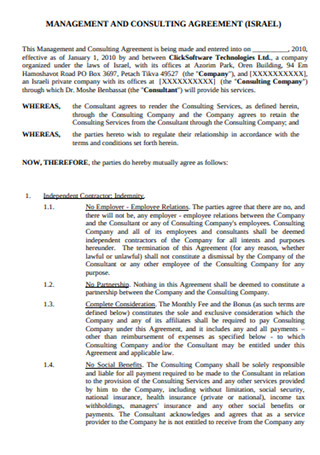
Management and Consulting Contract Agreement
download now -
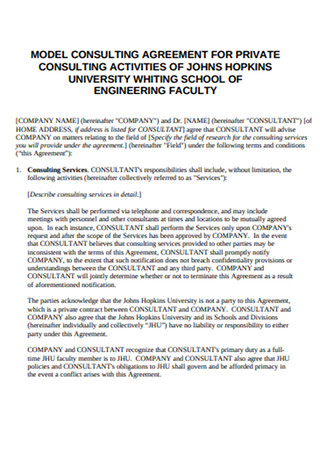
Model 1 Page Consulting Agreement
download now -
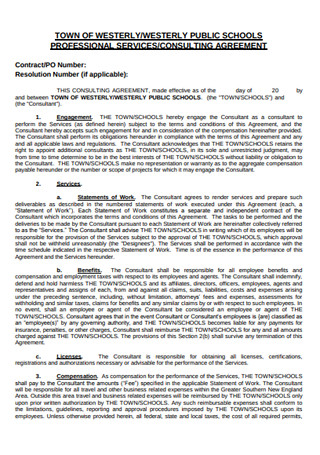
Public School Construction Consulting Agreement
download now -
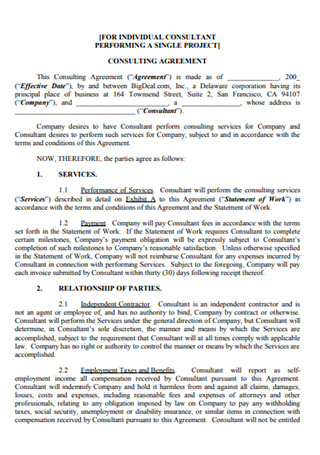
Short Consulting Single Project Agreement
download now -
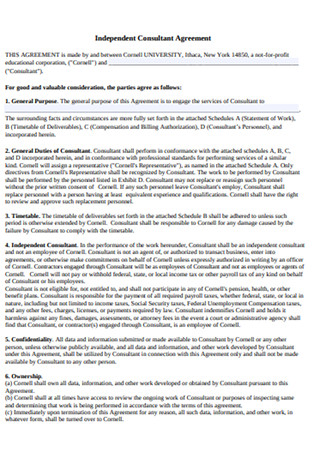
Independent Legal Consultant Agreement
download now -
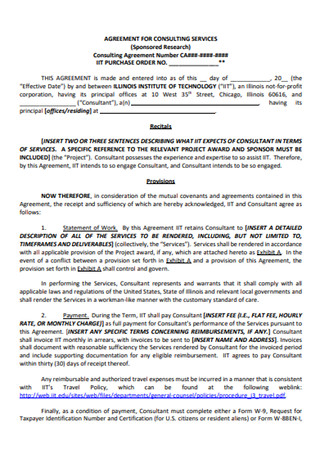
Consulting Design Purchase Agreement
download now -
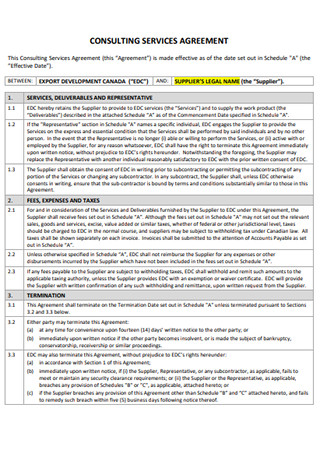
Basic Individual Consulting Agreement
download now -
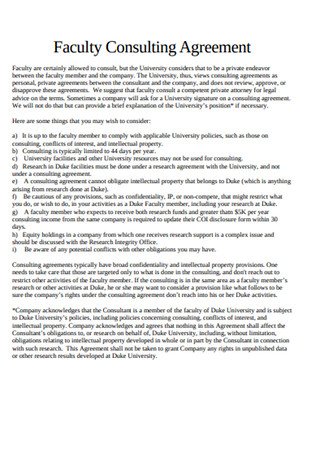
Faculty Consultancy Consulting Agreement
download now -
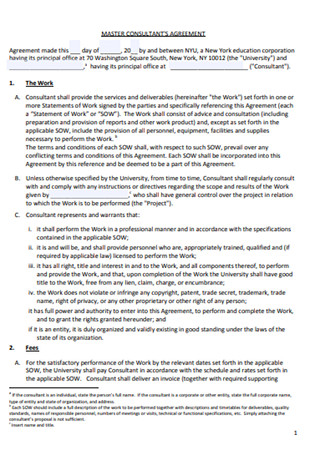
Basic Master Fee Consulting Agreement
download now -
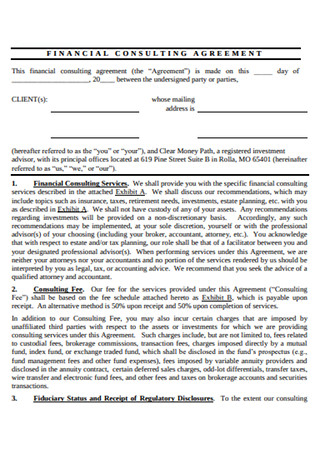
Financial Consulting Proposal Agreement
download now -
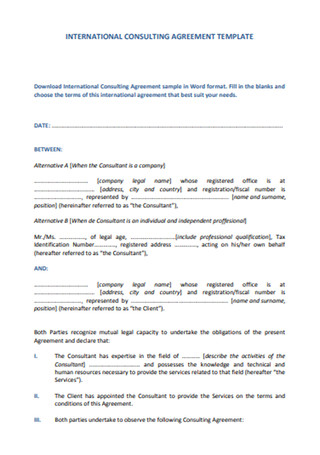
Standard Consulting Agreement
download now -
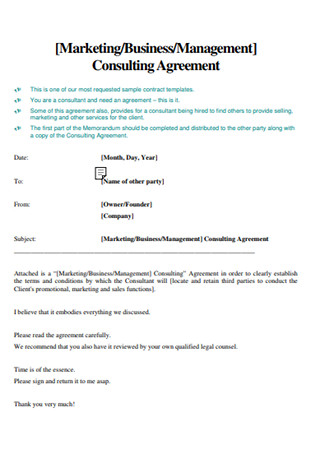
Marketing Consulting Agreement
download now -
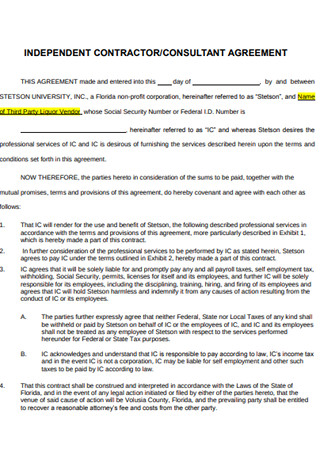
Independent Contractor Consulting Agreement
download now -
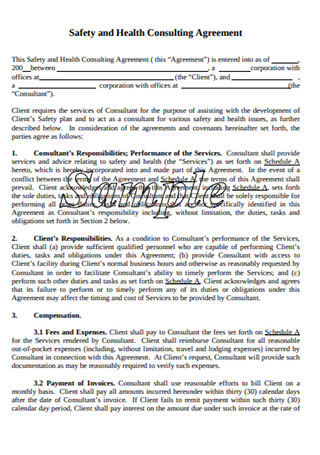
Safety and Health Consulting Intellectual Property Agreement
download now -
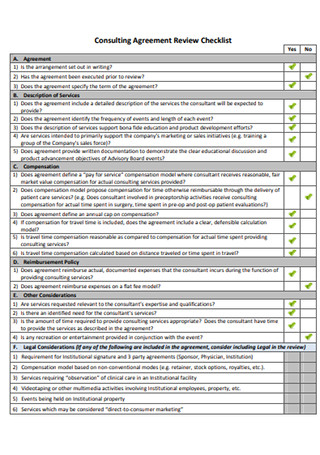
Consulting Work Agreement Checklist
download now -
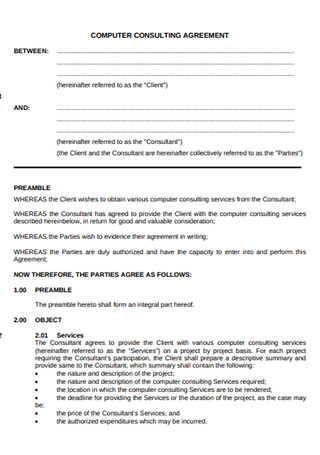
Exclusivity Computer Consulting Agreement
download now -
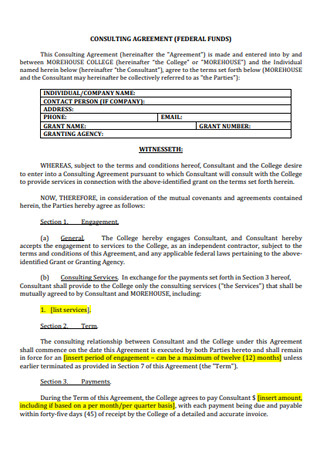
Consulting Federal Fund Agreement
download now -
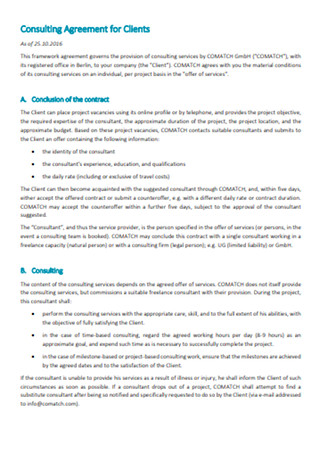
Consulting Agreement for Clients
download now -
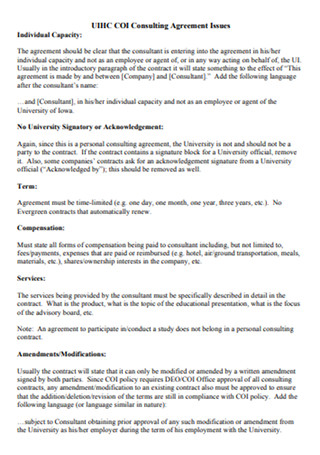
Issues of Consulting Agreement
download now -
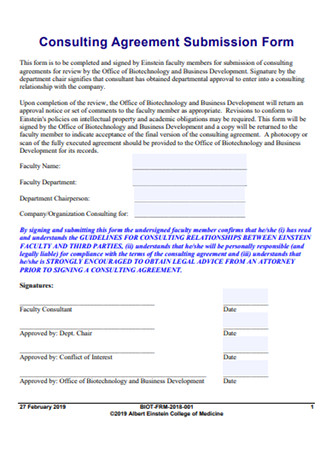
Consulting Agreement Submission Form
download now -
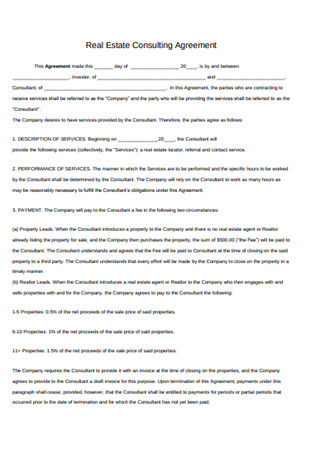
Real Estate Consulting Agreement
download now -
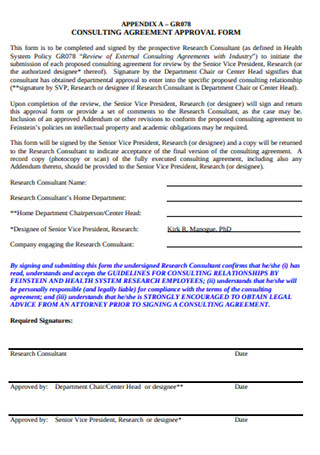
Consulting Approval Agreement Form
download now -
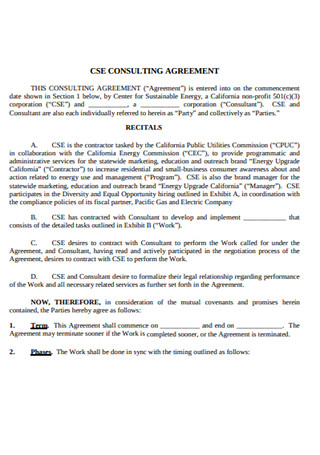
Standard Consulting Agreement
download now -
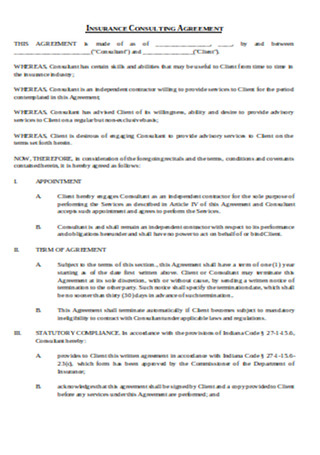
Insurance Consulting Agreement
download now -
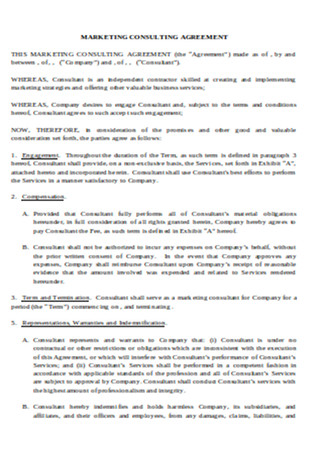
Simple Marketing Consulting Agreement
download now -

Model Consulting Agreement
download now
FREE Consulting Agreement s to Download
51+ Sample Consulting Agreements
What is a Consulting Agreement?
The Distinct Categories of Consultancy
How to Outline a Standard Consulting Agreement
FAQs
Why are verbal agreements not enough?
What is the difference between a Consulting Agreement and an Employment Contract?
What differentiates an employee from an independent contractor?
What is a non-competition clause and a non-solicitation clause?
What is the meaning of “notice” in an agreement?
What is a Consulting Agreement?
A consulting agreement is a contract that defines the relationship between a consultant and a client. The agreement can also be called as a freelance agreement, independent contractor agreement, or business consulting agreement. The agreement you use depends on what type of consulting service you need. A freelance work agreement is a contract between a free-lance worker and a company. It defines the processes of a project until it is complete. An independent contractor agreement is a document between an independent contractor and client. It describes the services a contractor has to perform to complete a specific task. An independent contractor can be a lawyer, doctor, freelancer, software developer, musician, etc. A business consulting agreement is a contract between a company and a consultant. It defines the services a consultant has to offer to a business.
Korn Ferry was first in the “top 200 executive search firms” specializing in obtaining positions with wages that are at least a minimum of $100,000.
In 2019, according to Statista, the company had annual revenue of $775 million.
According to the Bureau of Labor Statistics in the U.S, more people will choose to be a Political Consulting job in the coming decades.
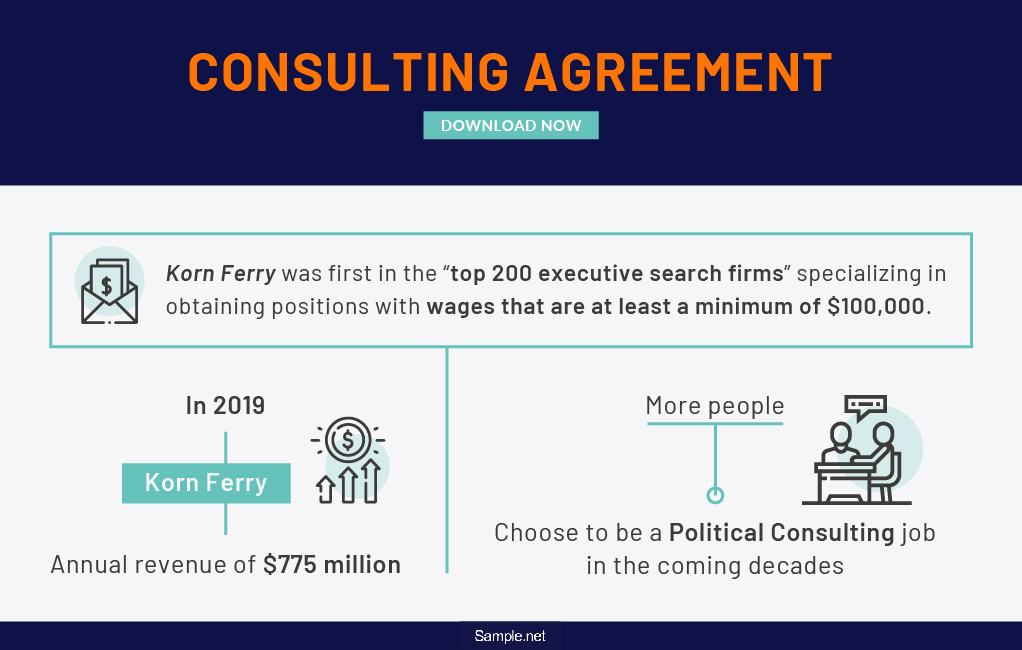
The Distinct Categories of Consultancy
There are two types of consultants, the generalist consultant, and the specialist consultant. A generalist consultant is an expert in several fields and provides services to businesses making general improvements. A specialist consultant specializes in a particular industry and offers services to improve a section of an institution. Some work for establishments while some work as freelancers. Typically, in establishments, consultants get higher positions (e.g., vice president). According to Statista, Korn Ferry, which is a large consulting firm in the U.S., hired about 1,144 consultants worldwide in 2019. In the same year, the company had an annual revenue of $775 million. On the other hand, general consultants are categorized distinctly. Below are some distinct categories of consultancy.
How to Outline a Standard Consulting Agreement
Several business entities ask help from consultants from the outside for expert help when the need arises. A consulting agreement can be likened to any business agreement where the parties involved sign an agreement that clearly defines its terms and conditions. Not all contracts look identical, but most likely they have the same key elements. So, here are the steps in outlining a standard consulting agreement.
Step 1: Describe the Purpose of the Contract
It is essential that the agreement clearly states its purpose and its scope. The description must answer questions concerning how a consultant will execute his/her job, what a client or business needs, what the problems are, what methods will the consultant apply to address the problem or need, etc.
Step 2: Set a Schedule for Your Agreement
Set deadlines for tasks and project plans that need to be completed. Add provisions concerning delayed work. Write in detail when a project or task will be considered as accomplished. Additionally, don’t forget to lay out the criteria for a task or project.
Step 3: Include Ownership Terms in the Contract
This section of the agreement determines who has the right to own the end-product, the consultant or the client. If the contract deals with property, such as, copyright, intellectual property, or creative work, terms concerning this should be plain and clear. For example, if the agreement states that any effort a consultant does is “for hire”, then the client has the right to own the finished product.
Step 4: Write the Payment Details
Any kind of service has a fee. Payment details include the amount of payment and conditions to get incentives. Also, payment details may state if a consultant will collect a flat-rate, retainer, day rate, or an hourly consultant fee once he/she finishes the job.
Step 5: Incorporate a Confidentiality Clauses
A confidentiality clause can be a non-competition clause or a non-solicitation clause. These clauses detail the conditions of confidentiality a consultant must follow. A non disclosure agreement is very crucial for the security of a client or a company’s trade secrets. This clause will define the penalties in case a consultant shares sensitive information.
Step 6: Type In the Conditions for Termination
The conditions for termination will determine what are the necessary actions to take in case one party decides to terminate the contract. Also, it will decide the penalties if one party chooses to cancel the agreement. Note that before actual termination, a 30-day prior notice should be given to the other party.
FAQs
Why are verbal agreements not enough?
Verbal agreements are hard to prove once you bring a case to court. If conflicts arise, the court will normally look for evidence before it hears one party out. With a written contract, courts will be forced to obey the terms written in the agreement even if it is against their convictions.
What is the difference between a Consulting Agreement and an Employment Contract?
A consulting agreement is a document used to temporarily hire independent contractors or consultants, while an employment contract is a contract used to employ workers.
What differentiates an employee from an independent contractor?
An independent contractor is a person who offers project-based services for a price and is self-employed. On the other hand, an employee works for an employer for a long period of time depending on the employment contract. To differentiate an employee from an independent contractor the following factors must be considered: who provides the tools, what skills are needed, who will manage the work, what is required of the hired individual, where the job is executed, what the term of the agreement is, what the status of the hired worker is, what the payment methods are, and more.
What is a non-competition clause and a non-solicitation clause?
After a consulting agreement is terminated, a non-competition clause will prohibit a consultant from unjustly competing with a client. A consultant must not accept a work that will compete with a client he/she recently handled. A non-solicitation clause is a clause that prevents a consultant from drawing the employees of a client or company away, therefore, affecting the employee-employer relationship. Note that courts may not regard a non-competition or non-solicitation clause as enforceable if it greatly affects the public, if it is too broad in its scope, if the consultant finds it difficult to find another job, or if it has geographical limitations.
What is the meaning of “notice” in an agreement?
Notice is the amount of time one party provides another if they decide to cancel their contract before the agreed date. The main intention of a notice is to give a client time to look for a replacement or the other way around. In most cases, employees benefit more from notices than independent contractors because the law doesn’t offer this kind of protection unless the contract provides it. However, jurisdictions may pay attention to a freelancer if he/she can prove that he/she was dependent on the client.
If you are a consultant, you want to be sure of your compensation before offering your services to a client or a company. If you are a client, you also want to ensure that the services you pay for are rendered well. As a consultant, you should protect your interest and make sure that you are compensated fairly after accomplishing a project or a business plan. If you are a client or if you own a business, a consulting agreement will protect your company’s trade secrets via confidentiality clauses. In both ways, consulting agreements protect the interest of both parties.
